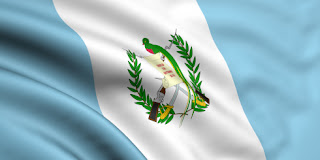In 2004 the Guatemalan government admitted before the Inter-American Court of Human Rights that Ríos Montt's regime had pursued a strategy of genocide. The case before the court back then was the Plan de Sánchez massacre in July 1982, where more than 260 people were murdered. The army arrived at dawn, rounding up the villagers, cutting off all escape routes, dividing the women into two groups; one for raping before their deaths and the other just for killing. To save bullets women were crowded into a small house that was set on fire with grenades. The Plan De Sánchez massacre was one of well over 300 massacres during the worst phase of the civil war and was by no means the largest.
The charges he is now facing rely in some part on investigations I oversaw as the Legal Director of the Center for Legal Action on Human Rights (CALDH) in Guatemala from 1997 to 2001, and that is a matter of some satisfaction. We were one of many groups committed to justice on behalf of victims, building on the work of the Commission on Historical Clarification and the Catholic Church Project to Recover the Historical Memory. No one thought justice would be quick in coming, and many assumed it was not a battle worth fighting at all. But his trial is a cause to celebrate, and to marvel at the heroic dignity of the genocide survivors who throughout decades of, vilification, attacks and even killing, have stood fast. They want the world to know the truth, how their loved ones were massacred in systematic, precision-planned operations at the hands of the General.
In the years after I worked in Guatemala, the image I carried of the plight of the genocide victims was that of the haunting face in Edvard Munch's famous painting The Scream. The pain is obvious to the observer, but there is no sound. The victims of Ríos Montt were largely uneducated peasants: even screaming at the top of their lungs, their voices were never heard.
Guatemala's civil war took the lives of 200,000 people from 1960 to 1996. The origins of the civil war can be traced to a U.S. backed coup in 1954 that deposed President Árbenz, a moderate, centrist leader, applying policies of land reform that threatened the holdings of large U.S. property owners. General Ríos Montt seized power in a coup d'état from a decrepit and corrupt military regime that was in danger of losing the civil war in March 1982. He continued a genocidal campaign against the indigenous Mayan population, implementing a scorched earth policy that was endorsed by Ronald Reagan -- who famously said that Ríos Montt was "getting a bum rap on human rights." President Clinton apologized for the coup in 1998, although not for Reagan's support.
The war ended officially in 1996 amidst calls for stability and investment from the international community. Predictably, a free trade agreement with the U.S. followed and the frenzy of privatization that followed led to ever greater inequalities in what was already one of the continent's most disparate. Guatemala has since slid into failed state territory becoming a narcotics transit zone between Colombia and Mexico, with homicide rates that are higher now than they were during the civil war. It is an impossible to compare the tragedies inflicted on the populations of Latin America in the name of so-called national security doctrines, but Guatemala's war took more civilian lives than any other in Latin America, almost all at the hands of the army and their proxies.
It is hard to overstate the damage US policy has wrought on the ordinary people of Guatemala, but the primary responsibility lies with the Guatemalans who planned and carried out these horrors. Ríos Montt is but one of many. But this is not the time to focus on him. It is a time to admire the courage of impoverished peasants who screamed for justice until their voices were finally heard.
Paul Seils -- Vice President, The International Center for Transitional Justice
Originally posted: 02/ 1/2012 12:02 pm
Source: http://www.huffingtonpost.com/paul-seils/guatemala-genocide-ruling_b_1247071.html



No comments:
Post a Comment